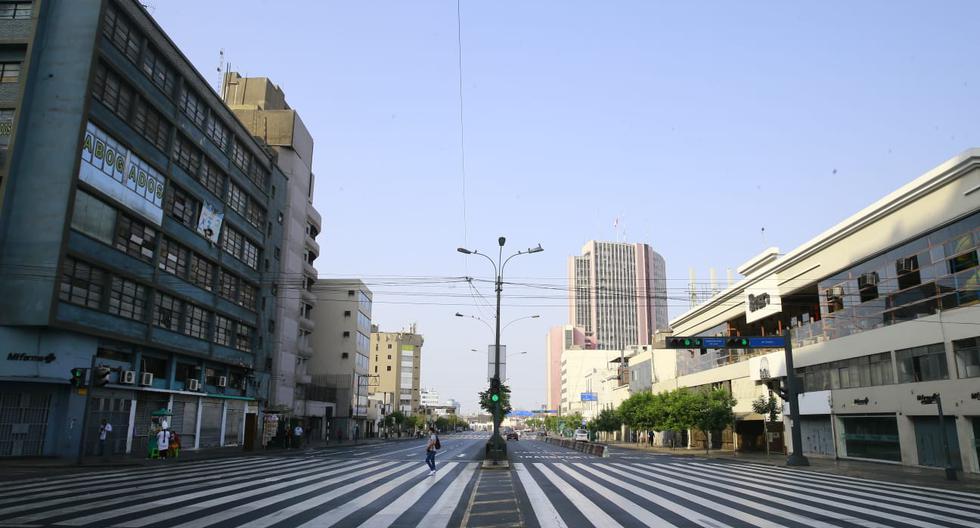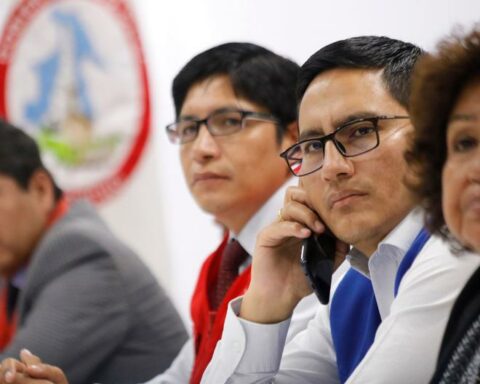On Monday night, the President Pedro Castillo surprised the announced country curfew, from 2 am to 11:59 pm on Tuesday in Metropolitan Lima and Callao, as a desperate action in the face of the protests unleashed by the strike of carriers. And such a provision had an effect on the pockets and accounts of millions of workers and businesses.
Economic impact
Although Castillo announced yesterday afternoon, from Congress, that the measure would be without effect, the economic impact was considerable.
Thus, according to the estimate of the Lima Chamber of Commerce (CCL), for each day of immobilization in Lima and Callao alone, the country’s Gross Domestic Product (GDP) loses around S/1,000 million.
Just to give an example, the union indicated that wholesale and retail trade would have losses of S/140 million daily, affecting 100,000 people.
The entrepreneurs of the wineries were also hit, since the Association of Wineries of Peru estimated that the 150,000 businesses that are dedicated to this item in the capital lost S / 12 million.
Meanwhile, Susana Saldaña, representative of the Gamarra businessmen, declared to Perú21 that the losses amounted to S/20 million.
“If tomorrow the businessmen of Gamarra decide to go out to protest because we are going through a bad time, will they put us back on curfew?” he questioned.
Another impacted item, and that has not yet recovered from the pandemic, is Tourism. In this regard, the Peruvian Association of Travel and Tourism Agencies (Apavit) estimated that the losses would be of the order of US$500,000.
The president of Apavit, Ricardo Acosta, described the measure as “irresponsible” and indicated that those who had scheduled trips had not been taken into account.
A sector linked to tourism and that was also harmed by this decision are restaurants.
Blanca Chávez, representative of these businesses, stated that a day of stoppage represents an average of 10% of monthly sales of restaurants.
“Gastronomic entrepreneurs are not going to be able to fully reactivate ourselves with these measures restricting free transit, which seriously affects not only restaurants, but also the entire supply chain,” said the businesswoman.
blow to work
For its part, IPAE Business Association, considered that the restriction ordered by the Executive, in addition to “being unconstitutional”, threatened “against free movement and the right to work of people” and demonstrated the “inability of the Executive Power to govern” .
IPAE also affirmed that the country has been placed, once again, in a situation of “instability and anguish”, for which it urged the authorities to find a way out. “Unfortunately, this restriction of fundamental rights is part of this government’s systematic attack against democracy and the proper functioning of the State,” he warned.
The National Society of Industries (SNI) agreed with this position and added that today that economic recovery is being sought after the pandemic, “what is most needed is stability and coherence to generate more employment.”
“Social conflicts are not resolved by locking up the population, but rather through dialogue, with a clear agenda and taking actions to restore the rule of law and public order,” the business association stressed.
Keep in mind
- The crisis unleashed by the measure taken by the Executive caused the dollar to begin to rise, which determined that the Central Reserve Bank intervene with the sale of US$148 million. With this, the exchange rate closed at S/3,699.
- Confiep also joined the questioning of the restrictive measure taken by the Executive and called for actions to be taken “in accordance with democratic and constitutional principles.”








